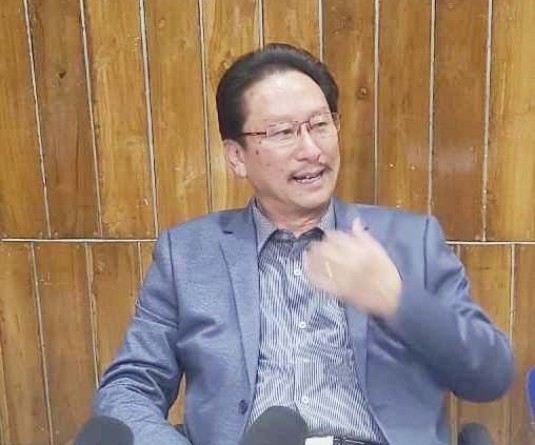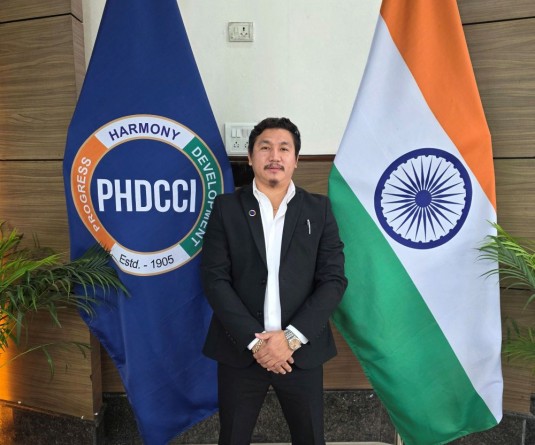
Morung Express Feature
Dimapur | July 14
In the past six years, education has covered an extra mile in Pou Nyui village. Located close to the Indo-Myanmar imaginary international border, in the latter’s territory, students of Pou Nyui were still going to school before but many dropped out—only 8 to 10 percent students passed Class 8. Of those who passed, few could afford to move to Lahe, the next town in Myanmar near the Naga Self Administered Zones (NSAZ) that houses bigger schools.
In 2013, a Mission spanning several religious and secular institutions, as well as communities (tribes), across Nagaland began to take shape among the lives of people inhabiting these border lands. Termed the Love Burma Mission (LBM), it is an initiative of the Chang Baptist Lashong Thangyen (CBLT - Chang Baptist Churches Association); its first project entailed setting up a 30-seater hostel for students in Pou Nyui.
“Pou Nyui has a school till Class 8 but the surrounding villages have schools only till Class 4. We wanted to ensure that interested students had an opportunity to properly study at least till Class 8,” explains Isaac Chongshen, field worker with the LBM since 2014.
The hostel provided the much-needed boost for students to begin catching up with their education. Housed in dormitories, the day was scheduled to include study, sports and prayer times, providing a holistic foundation for education. “It has been four years since the school at Pou Nyui has seen 100 percent Class 8 pass results,” says Chongshen.
In the NSAZ, those who have passed Class 10 are considered for government jobs, including teaching or nursing. Passing Class 8 opened up the possibility to study till Class 10, and related opportunities opened up further.
Allied reforms
A slew of other reforms took root in Pou Nyui, as well as the surrounding villages. The LBM introduced health camps, provided training in carpentry, organizing Self Help Groups and teaching new cultivation methods; significantly, it ensured the construction of toilets in every household of some villages. For each toilet constructed, a household won a solar lamp.
“Children who studied by the fireside could now study by light when their parents built a toilet in the house,” explains Rev. Chingmak Chang who was the Executive Secretary of the CBLT when the Mission took off. The LBM focuses on human development—education and health are its cornerstones; small innovative ideas took these two forward together.
Having toilets per se, for instance, was not enough. Toilets need water and the villages did not have a connection. In at least three villages, the LBM helped bring water connections from a common source in the village to the households (the government had laid pipes from the community water resource to a common point in the villages).
Even as the annual outbreak of diseases was common in the area, Rev. Achu Chang, current Executive Secretary of the CBLT and now in-charge of the LBM, notes, “many health issues have been resolved over time.” The Mission trains health workers drawn from the community and provides free medicines where possible. If further treatment is required, it organizes for patients to be taken to either Lahe or Noklak.
Future hopes
As the LBM has expanded to other neighbouring villages like Kingphu, Old Toi, New Toi and Langting, it hopes to expand its work to support and strengthen government hospitals in the area as well as increase the number of seats at the hostel for which the local demand has increased.
“Most children here,” says Rev. Achu, “cannot be supported by their parents due to steep poverty. We need people to come forward with help so that future generations of Nagas in Myanmar are equipped to take this work forward on their own.”
Chongshen points out the criticality of time in extending this help. “We may not be able to continue working there for too long given the volatile politics of the international border. The need to do this work is now.”
Stressing that the LBM’s motto is “calling the privileged to help the underprivileged,” Rev. Achu reiterates, “as Christians, we are called upon to love one another and help the needy;” a “biblical mandate,” that the Love Burma Mission is fulfilling.





